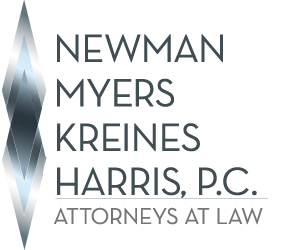Insurance Newsletter
Directors’ & Officers’ Liability Insurance
Directors and officers of a company can be held personally liable for what they do while acting in their official capacities. To offset the risk of this liability, the company or the individual may choose to buy directors’ and officers’ liability insurance.
Directors and officers are the decision-makers of a company. If someone is injured by a decision made by the directors or a single officer, the injured person may choose to bring a lawsuit. One of the more common instances in which such liability may arise is when a company shareholder is dissatisfied with an action taken by the directors or officers of the company. Another instance is when an investor in the company claims to have been misled by the company’s prospectus or other literature. Past or present employees, company creditors, or even governmental agencies may also sue directors or officers. In some cases, the company itself may sue a former director. Directors can even sue other directors.
Individual directors may be jointly and severally liable for the actions of the entire board of directors. This means that one director can be held responsible for all of the actions of the board of directors on which he or she sits. When a director or officer is being sued personally, his or her home and other personal assets may be at risk. If directors and officers could not be protected against this risk, companies would have very difficult times filling positions of authority. Usually a company will agree to indemnify the officer or director, which means the company will pay whatever amount the officer or director is ordered to pay to the injured party. At that point, the company faces the risk that it will have to pay a significant sum of money to the director or officer. The company then chooses to protect against the risk by purchasing directors’ and officers’ liability insurance. The director or officer may choose to purchase such insurance himself or herself to cover those instances in which the company cannot or will not indemnify him or her.
A directors’ and officers’ liability policy protects against costs incurred when the director or officer is sued for an action he or she took while acting in an official capacity. These costs include any amount the officer or director is ordered to pay to the injured party, as well as the costs of defending against such claims. The insurance company has a duty to defend the insured. Usually, the insurance company hires a lawyer outside the insurance company to provide the defense.
Directors’ and officers’ liability insurance does not cover a director or officer for actions taken outside his or her official capacity. For example, a policy may not cover a personal action taken by a director, such as driving his or her car to a director’s meeting. Actions taken by a director that exceed his or her official authority are also excluded. For example, a company treasurer who lacks authority to enter into a contract will not be covered for any damages arising from that contract. If the company treasurer embezzles money and is ordered to pay it back, he or she cannot seek compensation through the directors’ and officers’ liability insurance.
If the company purchases the insurance coverage, the insurance coverage will not apply to actions brought by other directors, officers, or the company itself. Directors’ and officers’ liability insurance typically excludes coverage for damages from pollution, fraud, personal injury, and property damage.
